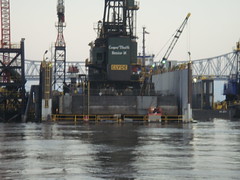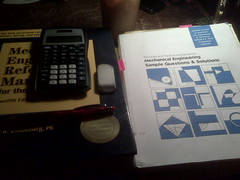That's in part because of a specific exemption in the act that can allow for the use of foreign "oil spill response vessels," said H. Clayton Cook, a Washington attorney and expert on the Jones Act.
"That takes care of your skimmers and your oil spill vessels," he said.
Is the Jones Act, on balance, a good thing or not? Is it protectionist or is it a vital matter of national security? There's way too many facets of such a large law, but I'll talk about the main thrust of the Jones Act (maintaining domestic merchant marine and shipbuilding force).
The Merchant Marine Act of 1920 was authored by Wesley L. Jones (R- Washington) and has been nicknamed the Jones Act ever since. Note that the act has also been revised several times, with large changes made in 1970 and 2006. Here's the preamble to the Jones Act that more or less goes through its purpose and intent:
It is necessary for the national defense and for the proper growth of its foreign and domestic commerce that the United States shall have a merchant marine of the best equipped and most suitable types of vessels sufficient to carry the greater portion of its commerce and serve as a naval or military auxiliary in time of war or national emergency, ultimately to be owned and operated privately by citizens of the United States; and it is declared to be the policy of the United States to do whatever may be necessary to develop and encourage the maintenance of such a merchant marine, and, in so far as may not be inconsistent with the express provisions of this Act, the Secretary of Transportation shall, in the disposition of vessels and shipping property as hereinafter provided, in the making of rules and regulations, and in the administration of the shipping laws keep always in view this purpose and object as the primary end to be attained.
I've read a few things that have led me to the conclusion that the main thrust of the Jones Act is a good thing (although there's lots of subsets that could probably use a re-write). A couple more things to throw out there:
* All shipbuilding tends to be overbuilt. From Wikipedia's Shipbuilding page: "Historically, the industry has suffered from the absence of global rules and a tendency towards (state-supported) over-investment due to the fact that shipyards offer a wide range of technologies, employ a significant number of workers, and generate foreign currency income (as the shipbuilding market is both global and dollar-based)."
* The purpose of the Jones Act isn't about commerce, so citing examples how much it costs consumers isn't the point. If we let, say, China become THE global shipbuilding power and we have a war (or, more likely, a naval-based trade skirmish) it won't do any good to try and contract with Chinese shipyards to build vessels for the navy. Remember, by definition, the in-place warship building capability is overwhelmed.
* Big multinational companies are the ones pushing the hardest for killing the Jones Act, but lots of local shipbuilding companies are terrified of doing away with it. Aker Shipyards in Philadelphia has a page about the Jones Act. New Orleans City Business had a great article about the Jones Act a while ago where they interviewed reps from local shipyards and service companies who all stated they would be put out of business if foreign companies, with looser engineering, labor, and pollution laws were allowed to come in and compete on their home turf, meanwhile their countries have similar protectionist laws in place the prevent them from competing in foreign lands. The companies interviewed (going off memory; subscription required for City Biz site) included Bollinger, Houma Industries, Hornbeck, and Chouset Offshore.

Time to kill the Jones Act? Probably not. If there's a specific problem with it, rewrite that part of the law. Otherwise, leave some fat in the system, because it's way too easy to 'lean' your way to disaster.
Anyway, if anyone has any specific experience with the Jones Act, I'd love to hear it.
UPDATE- Even RigZone calls the Jones Act a red herring, but they fault the USCG for not seizing control of the spill response (non-wellhead intervention) -side of the Macondo Blowout.


